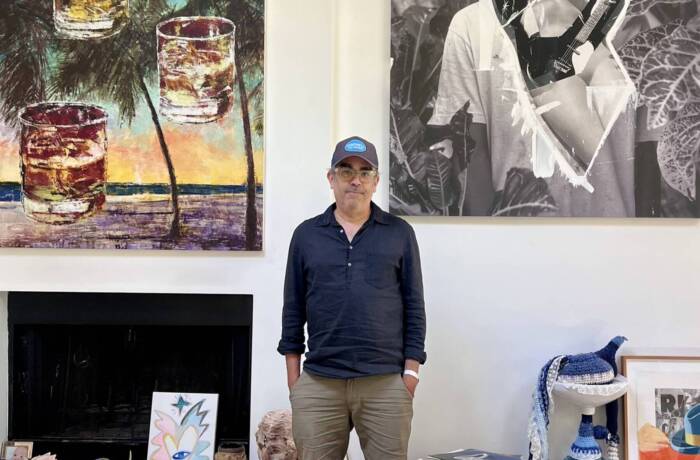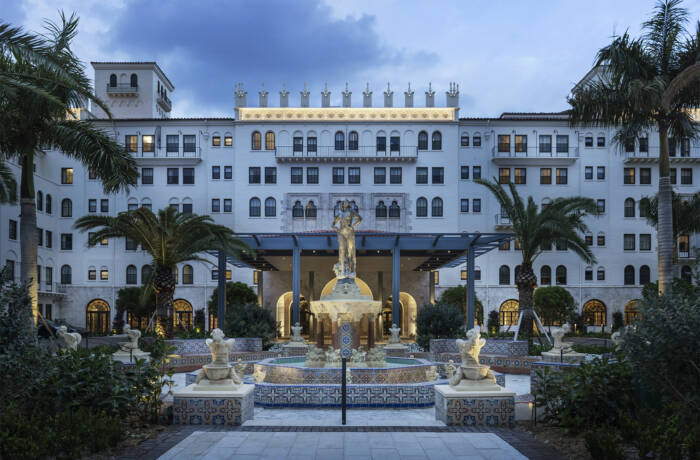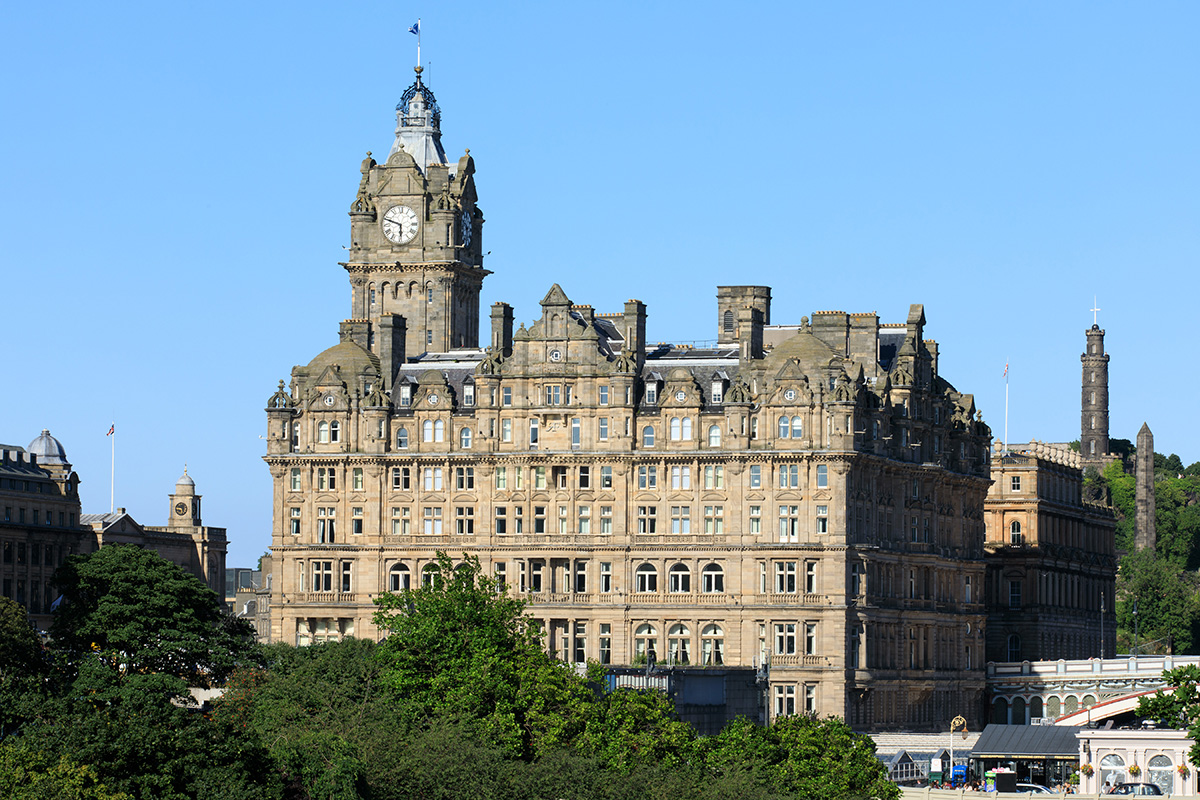
The Rocco Forte Balmoral hotel in Edinburgh, Scotland
Since he created it in 1996, Sir Rocco Forte has grown his eponymous luxury hotel group to include multiple properties in key destinations across Europe, with a major expansion this year within his family’s native Italy. And there are plans for the boutique group to move into the US, Middle East and Asia. LUX’s Editor-in-Chief Darius Sanai speaks to the group’s chairman and founder about new openings, changes in the hospitality industry and what it takes to be a successful entrepreneur
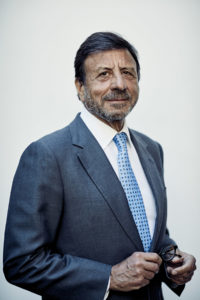
Sir Rocco Forte, Chairman of Rocco Forte Hotels
LUX: Rocco Forte hotels is currently in a period of planned rapid expansion – why now?
Sir Rocco Forte: We had a period of consolidation after the financial crisis and have gradually come out of that and the business profitability increased. We’ve improved the quality of the management team. Generally taking the company forward, it was the right moment to start expanding again and looking at adding additional properties…
There are a huge number of different luxury brands within Marriott. Having said that, I think there’s an opportunity for the niche player somewhere, a business that is much more personalised in its approach to its customers, where attention to detail is extremely important. I think people are looking for things which are more individual, more related to where they are going. They want the rubber stamp wherever they go. I think it is going to get more and more difficult for these big companies to actually deliver that, and for a smaller organisation like mine, it’s easier because the top management is hands on. The business and the detail of business has some advantages.
Follow LUX on Instagram: the.official.lux.magazine
LUX: How has the landscape and your business philosophy changed since you started?
Sir Rocco Forte: It’s changed significantly on the technological side, the way people buy hotels in particular is much more a business done through the internet than there was than it was before, there are online travel agents who are becoming quite powerful. Customers are now more inclined to book through the web than going to direct to hotel. Then there’s the social media aspect which is also becoming more important, as a means of communication and promotion of properties. There is an interaction between guests who have tried properties and posted comments and so on. This is picked up by other people and used to validate their choice. TripAdvisor type sites didn’t really exist before and now people use it to make up their minds about hotels. Then you have the back of the house side of things; technologies have come in there and give management a greater ability to know their guests. There is increased technology in the rooms, television, wi-fi. Wi-fi became available 20 years ago and now people complain unless they had the fastest band available in the hotel. People used to pay for wi-fi and now they don’t want to pay for it anymore. Telephones, actual landlines have gone out of the hotels; they are hardly used.
In terms of the actual service side, the principles remain the same. The customer wants to be treated as an individual, wants to feel a warm welcome when he goes into a hotel, wants to be recognised. Maybe the relationship between the customer and the staff members has changed to some degree, it’s become slightly less formal, which is something that we did from the beginning. I wanted to de-formalise the service to some degree. Then you’ve also got to keep up to date in a hotel because there are things that people have in their own houses that they expect to find at a hotel and it is a competitive market place.
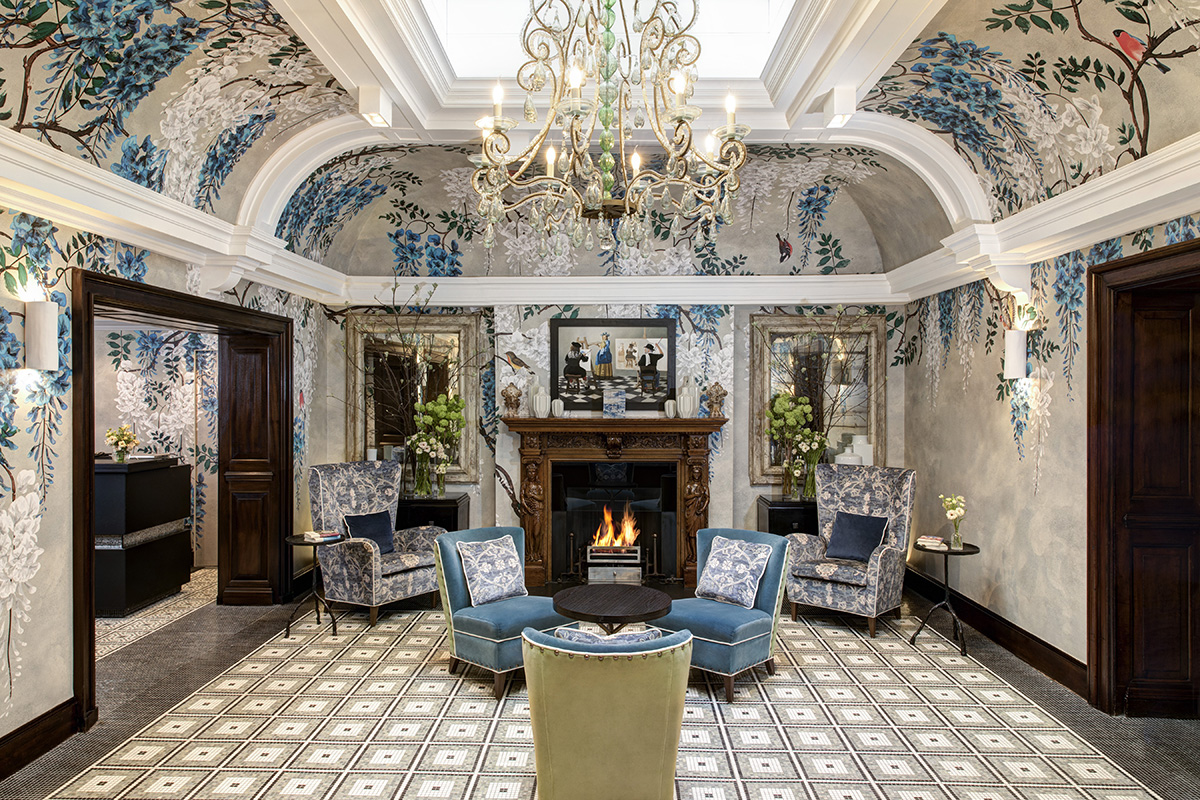
The front hall at Brown’s, a Rocco Forte hotel in London. Photo by Janos Grapow
LUX: The marketplace is much more crowded nowadays with new players coming in and there’s Airbnb. What is it that has allowed you to keep going and growing with so much more supply?
Sir Rocco Forte: Airbnb doesn’t really effect the luxury end to any great degree. Airbnb has already started to show problems with consistency. There are plenty of niche players coming in and it does eat into the marketplace, but if you have a well-located hotel and you deliver an excellent service and have a regular clientele that like the place, it’s very difficult to prize a luxury customer away from a hotel that he’s used to and where the staff are trained to his needs. There have been a lot of new openings in London and there are more in the pipeline; there’s always a supply and demand equation. I think you’ve got to try and distinguish your hotel group from others and make a potential customer feel that they will get something special, something different if they come to you. The staff are the people who deliver the service and you’ve got to ensure that they’re motivated in the right way. They need to have the right training, the right philosophical background. We put a lot of effort into induction where we tell them about the family, the history of the company, the history of the hotel and something about the city where the hotel is located so everyone has a sense of heritage and belonging as a family. It is my sister and myself and three children running the hotels, we know a lot of the individual staff members and it creates a sense of warmth in our hotels which you cannot necessarily find anywhere else.
Read more: Chaumet’s latest exhibition reveals the symbolic power of tiaras
LUX: Is it important that your guests can recognise the brand when they’re staying at one of your hotels?
Sir Rocco Forte: Yes, part of having a group is that, you get cross fertilisation and you get customers using more than one hotel, following the brand. So the brand is important because the customer knows that if he comes to Brown’s or goes to Hotel de Russie in Rome, he will get a certain type of service and a certain type of welcome.
LUX: A lot of your properties are significant and historic properties in individual cities, how do you imbue them with the Rocco Forte brand?
Sir Rocco Forte: The induction is consistent throughout the company that creates the blueprint on which the hotel is based. My sister who leads the decor has a strong agenda and sense of place. It is very difficult sometimes to please everybody. The thing is you get a hotel designer to design the hotel and there are the prototype rooms, but it is never quite finished, it is a design hotel, you are always adding little bits and pieces and so on, which gives a more personalised touch. My sister does that very well. She usually buys locally, which give the rooms a more homely feel.
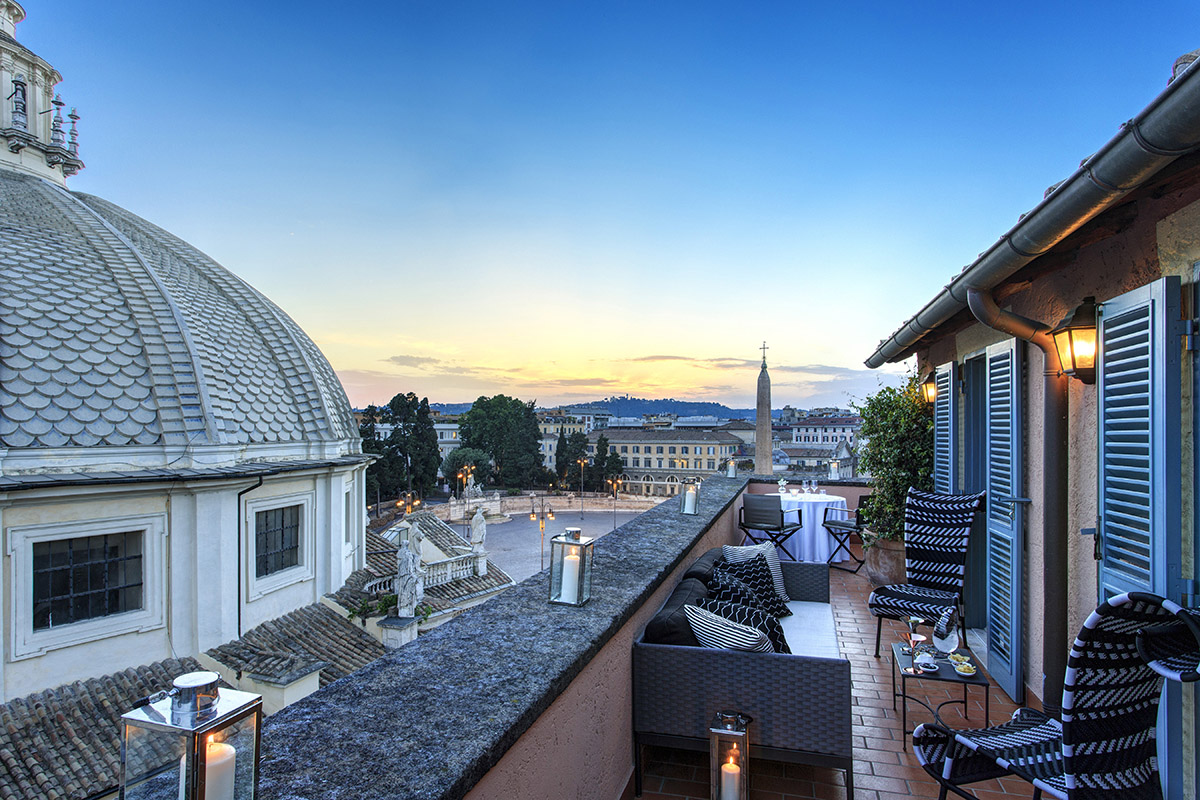
The view from the Popolo Suite at Hotel de Russie in Rome
LUX: You have lots of developments happening in Italy at the moment – is Italy a particularly important destination to you?
Sir Rocco Forte: Italy is not the easiest place to do business, so in a way that is an advantage for us. Italy is a tourist destination, it is the prime tourist destination in the world. The American market loves Italy and that’s a very important market for travel. About 40% of our business comes from the States, you can get high prices for the rooms you sell, which in some destinations it’s impossible to do. So from that point of view, it’s attractive. The bureaucracy and the labour laws make it difficult, but the demand is there if you get the right hotel in the right location and at the price.
LUX: And Italy is underserved by luxury hotels, isn’t it?
Sir Rocco Forte: Yes, there’s no luxury chain across Italy, and we now have the opportunity to create one. We have six hotels and the three new hotels that we’re developing — we are doing a second hotel in Rome, a small 40 bedroom hotel in Puglia, and we have just taken on a place in Palermo, which is a 100 bedroom hotel and used to be a jewel of a place, but is now very run down and it’s been badly run for many years. It is a wonderful destination hotel. The city Palermo is having a revival, a lot of people are buying houses there, and doing them up. It is quite a good time to go in there and I already have a resort in south of Sicily, and Palermo is the airport you use for that so having the two properties working together is beneficial. But obviously, I need to be in Venice and Milan, I’d like to be on the Amalfi coast and some of the other heritage cities with smaller hotels. I am pushing to try and get there.
I also still want to be in the States…New York and LA and Miami maybe, I’d like to be in Paris, I’d like to be in Moscow, and probably another German city. Hamburg or Dusseldorf would complete the German equation. We are doing our first hotel in the Far East, in Shanghai, which will open next year. We don’t have a clear date, things get delayed quite a lot there. It is moving forward, but slower than it is supposed to. That will be our first step into that part of the world. We will see. If I am going to travel to my hotels and if they are way out, that’s less attractive. I have to think carefully about it, about how far we extend geographically. Within Europe it is fairly straightforward.
Read more: Maryam Eisler’s new photography series reimagines pastoral romance
LUX: With the new portfolio that you are developing, are most of the hotels owned or managed, or both?
Sir Rocco Forte: The Palermo hotel we bought, but we probably won’t keep the ownership. We are talking to a partner about taking it on and leasing it back to us. The other two are leases, I prefer leases to management contracts because we’re in control with a lease. You have complete control of the property and you can do more or less what you want. With a management contract, the owner tends to interfere all the time. He thinks he knows how to run the property better than you do. If the hotel is doing well, he doesn’t need you, if the hotel is doing badly it is your fault. You take on more risk with a lease, but then it is a bigger upside and you have control over your own destiny.
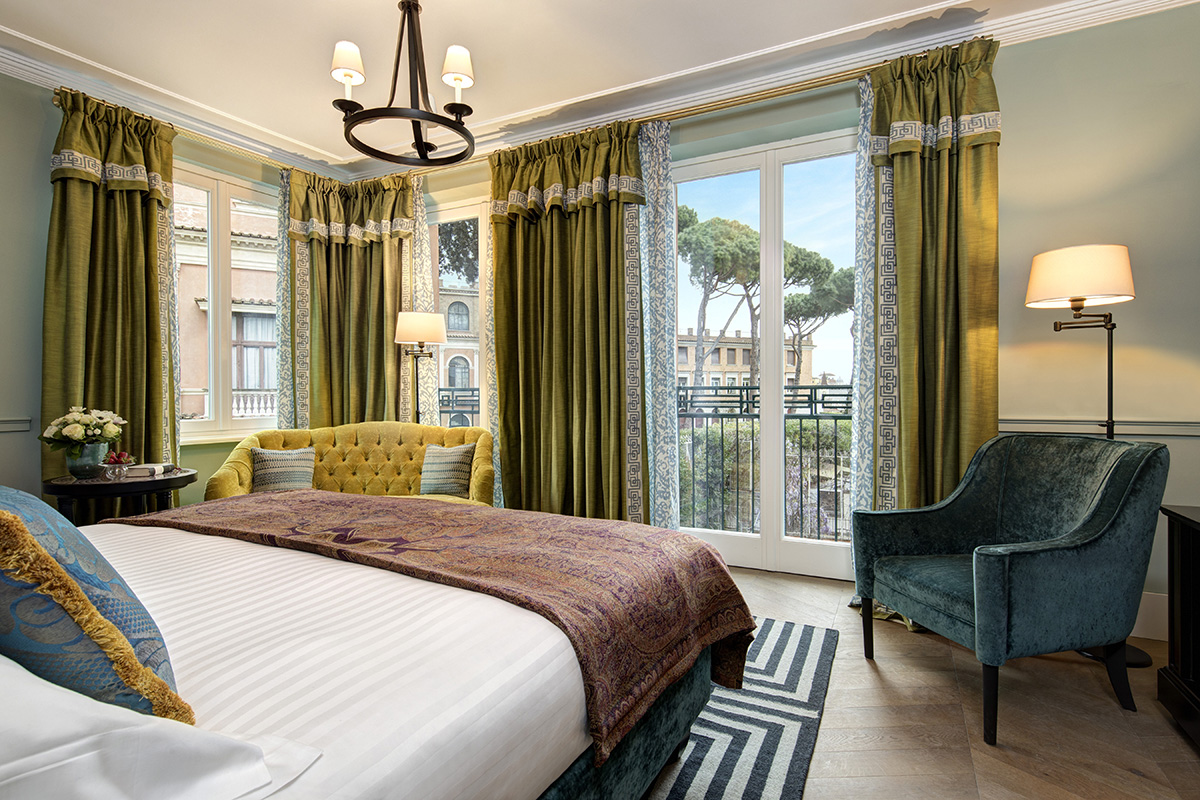
A Junior Suite at Hotel de La Ville, one of two Rocco Forte hotels in Rome
LUX: As an entrepreneur, what qualities have you needed to get to this stage with RF Hotels?
Sir Rocco Forte: Very difficult to say. I think you have to have a passion for what you’re doing, what you want to do, and you have to really care, and have people around you who believe in what you’re trying to do, who will help you to do it. You have to have determination. Where there are obstacles you have to overcome them. You have to have the determination to overcome them, not take no for an answer, continuously try to move things forward. It is easy to get dispirited, upset and to give up. A lot of people do, but I am not made that way and I am always looking forward, always looking to see if I can do things better. It is that, and I think the minute I stop having a passion, then I should stop working. But I hope that will never happen.
LUX: Do you have dreams of passing on the business to your children one day?
Sir Rocco Forte: Yes, but my kid are still in the early stages and they might well reach a stage, where they don’t want to take on responsibility so we’ll see. At the moment, that’s the idea. And it’s good having them working the business, it gives a certain continuity to the business and it adds value to the business. In the short term, it makes us different to a lot of other companies and from a personal point of view, it gives me a huge amount of pleasure: my kids have left home, but I see them all the time. We’ve got something in common to talk about and to argue about, and to enjoy. You never know — I could go under the proverbial bus tomorrow. And then what happens? The business is in a position where it can continue to go forward, but then my family would have to decide what they want to do.
LUX: Talking about the younger generation, do you think that, as customers, their demands of the hospitality industry are different?
Sir Rocco Forte: Apart from the technological side that we were talking about it earlier, the way they dress is differently, but in the end of the day they still enjoy service and being looked after. It depends…a lot of them are brought up under very comfortable circumstances and they understand that way of life and I don’t think they are particularly different. All the ones I’ve seen using my hotels, seem to enjoy the facilities like anybody else. I suppose there is more of a consciousness of wellness and well-being and looking after yourself than there was in the previous generations. We meet those demands through the facilities that we have in the hotels already. But I wouldn’t say there is anything dramatic and to build a hotel for a specific sector of a population is narrowing your market quite considerably. I also think people whether they are millennials or older people, like the idea of heritage and like the idea of history, and they enjoy it when they experience it — I don’t think that has changed. Most people want to know what is the next thing? I don’t know what the next thing is, but I think hotels tend to follow trends rather than set them. Mine do anyway. I think in the luxury sector, that is more so than it is anywhere… You have hotels now that have no staff, you put a credit card in a slot, you get a room key and you go up to your room. And there isn’t a restaurant, there are communal rooms for people to use, you help yourself, all these sorts of things, but not at the top end of the market. I don’t see anything dramatic on the horizon.
Read more: Where I would invest £100m in property by Knight Frank’s Andrew Hay
LUX: Your portfolio is predominantly city-based. Have you ever been tempted to start a resort hotel in tropical climates? And if not, why not?
Sir Rocco Forte: Because anything I’ve looked at hasn’t really worked financially. I haven’t managed to find anything. The hotel in Puglia has a beach facility available, but it is not on the sea. And then there is a seasonality thing, which is difficult. When you are building a new hotel from scratch, to finance that on quite a short winter season, for example, is difficult because it closes, then it opens for a very short summer season and then it closes again…
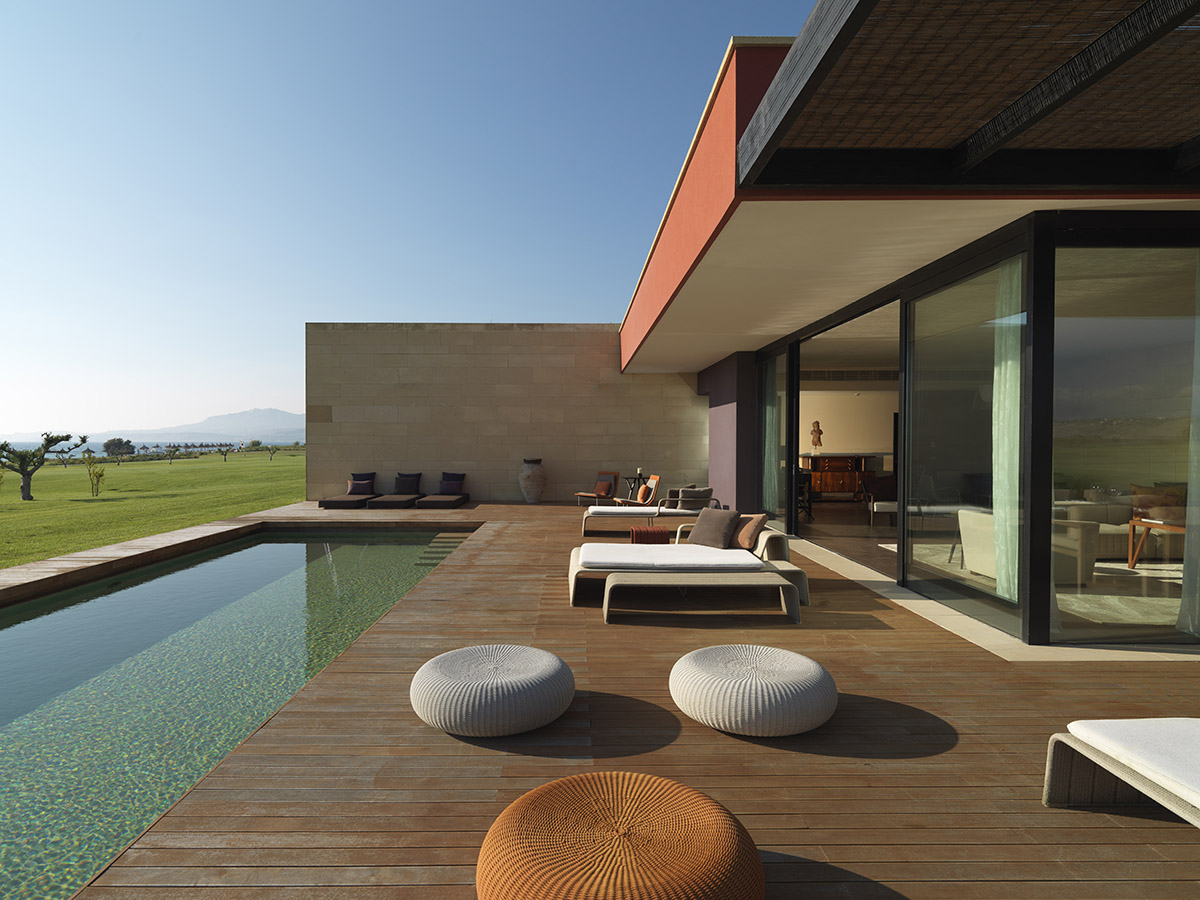
A luxurious villa at Rocco Forte’s Verdura Resort in Sicily
LUX: And what about the residences model that a lot of new hotels seem to have now, is that something you’d ever consider?
Sir Rocco Forte: It depends on the property, the location and the size of the property. But in Rome we’re now doing five luxury apartments, which are situated on the corner of Piazza de Spagna, which is within walking distance to our hotels (one is on top of the Spanish steps and the other one is on Piazza del Popolo). So that’s a new endeavour. Also we’re building some villas now in Verdura, which initially will be let as basically a sort of extended stay or hotel accommodation for families who want to stay together in one unit. We’re starting to get into that market.
LUX: Are there any other new developments in the pipeline that we should know about?
Sir Rocco Forte: My daughter has been working on the spas. The spa in the new hotel in Rome will be her spa design, which she thinks will be the first properly designed spa. She thinks that it has more activity and treatments and so on, which will encourage people to come and see. There are a range of creams that she produced which are properly organic so that is a bit of a new venture. Otherwise, we are continually looking to improve the facilities in our hotels. We are looking at the food side particularly. It is difficult for hotels to do restaurants well. We are always searching. A lot of places that have successful restaurants started out being run by restauranteurs, rather than hoteliers and then they have a few rooms as well. For example, Chiltern Firehouse or Costes originally, they had a few rooms and then they bought the hotel next door extending it. I haven’t found the key to creating really successful restaurants. Our restaurants are doing well by the standards of hotel restaurants. If we are doing 120 covers a day, we are happy, but there are restaurants doing 250 covers a day. Some hotel restaurants you go into, you never see anybody there. That is not the case with ours, but we can do a lot better than we do.
Discover the full Rocco Forte portfolio: roccofortehotels.com


